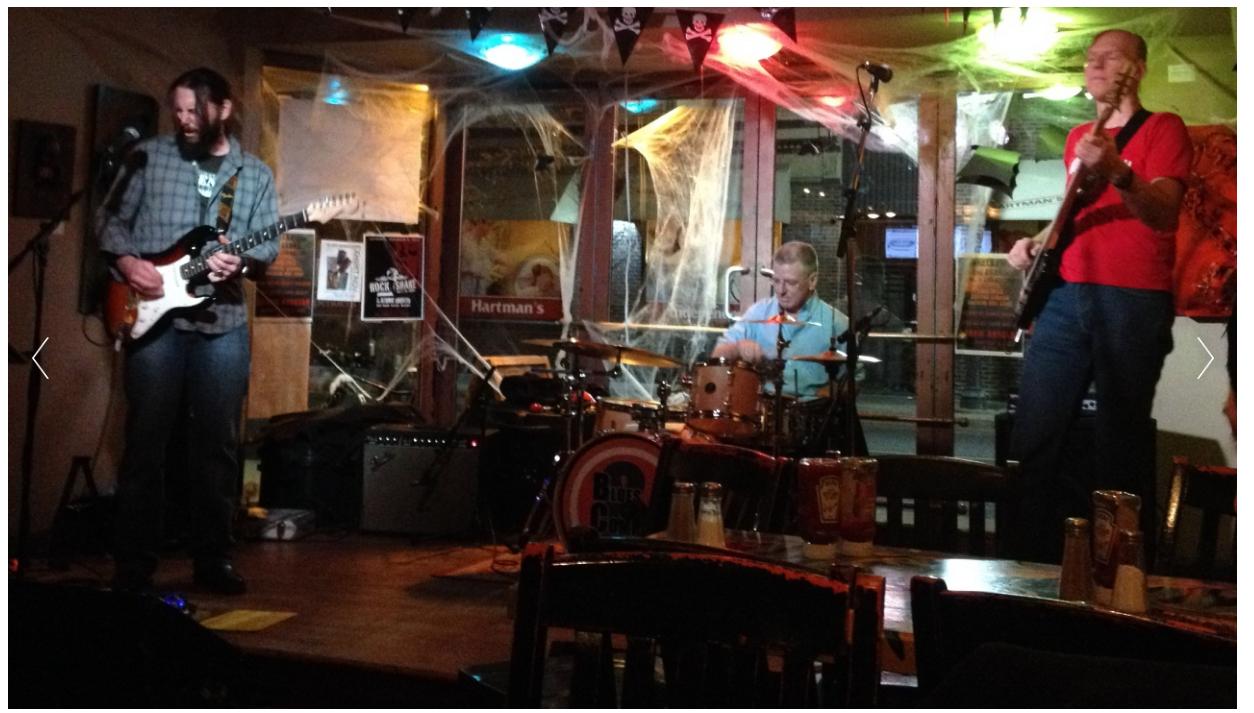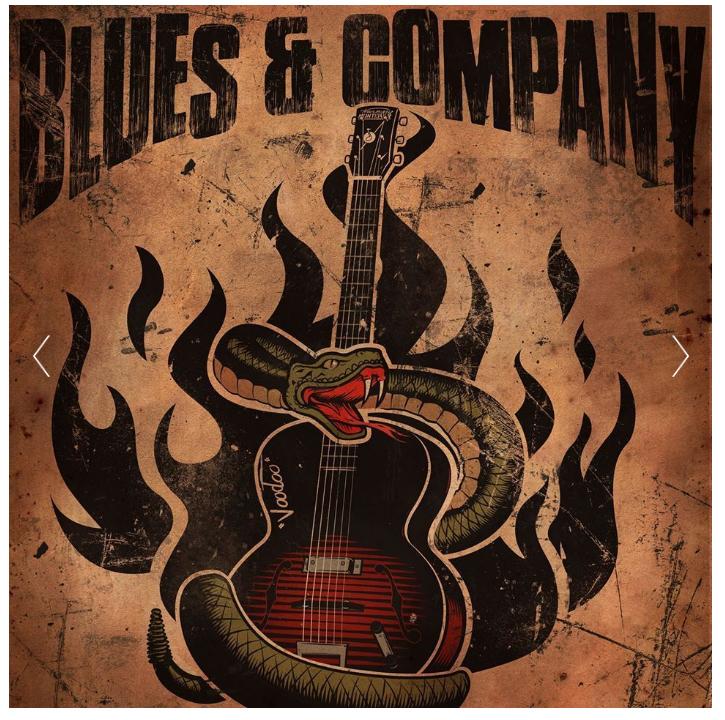
Invitation to the Blues
Photos courtesy of Blues & Company
Before 1993, Kevin Ficzere was living a regular life filled with bills to pay, kids to raise and work to do. Then he got the blues.
First he found a guitar God. A still self-professed Hendrix junkie, Ficzere discovered the legend in the late 80’s and his whole world changed. He describes it as a light being flicked inside. It lit up a part of himself he never knew existed. The more he heard, the more he wanted and he spent years consuming Hendrix's catalogue studying not only his style but the style of those who influenced it.
“I wanted to know who were his mentors and how he learned to play the guitar the way he did. I hunted for album bootlegs and spent years trying to located the rarest of his recordings – long before the internet! I read every book I could find,” says Ficzere and it all lead him to the blues.
“I went back to the source and fell in love.”

To him, the blues is music everyone can relate to. It’s that much needed release from the stresses of everyday life while at the same time being a sort of celebration of those very same things. He didn’t just want to play the blues, he wanted to engrain every facet of the music into his DNA. Chatting with Ficzere, you get the sense that he’s a walking Wikipedia of information, one click leading to another page and then another as you move farther and farther down the rabbit hole with him.
“The evolution of the genre is fascinating. Even more than that is that it's still evolving and will always continue to do that,” he says after rattling off a paragraph of history.
While working in the hi-tech industry out in Kanata, Ficzere formed his first blues band, Bluesco, and started his ride down the road of sad notes, hot licks and mournful wails. He was a long way from Mississippi but he had the music in him until life’s realities got in the way. With a new family and a truckload of responsibilities, Ficzere placed music on the backburner. He left Ottawa and headed west taking a job with the oil industry. Once again he was living a regular life filled with bills to pay, kids to raise and…well, you know the rest.
This time, however, he filled whatever moments he could spare jamming with other musicians he met in Calgary. There was no band, no cover songs, no agenda.
“There was no time for a band commitment or learning new cover tunes or even writing” Ficzere tells Ottawa Life. “We focused on the moment, and the music we created was truly incredible.”
The way the musician describes the experience, it was one that was exceptionally free and liberating. Returning back to Ottawa, the singer and guitarist was invigorated by these sessions from the west and began frequenting the Mississippi Blues Society monthly jams in Carleton Place. There, he met drummer Doug Corneil and it didn’t take long to talk him into forming a band.

They’d go by Blues and Company and bass player David Hamilton would be the third to join their ranks after an exhaustive search for the right fit. Since 2015, the band has had over 200 shows in the Ottawa Blues scene.
From Irene’s to the Atomic Rooster to the Rainbow, the band played them all. Some nights the audience hung on their every note, others the band was competing with the hockey game on the bar televisions or the occasional rowdy brawl.
“The business is a strange world at the start. You quickly come to realize that your band is a business and will need to conduct itself as one, to move forward successfully,” he says.
“That's where the real work begins. The hustle and flow of recognizing that you and your music are a product, will cure you or kill you, as an up and coming artist or band. They call that paying your dues in the industry.”
Ficzere continues to be an astute student of the music, studying his audiences to see what is working and developing the band’s style around that while trying to not duplicate the sound of his heroes. They cut their first self-titled EP and, suddenly, things started rolling a lot quicker.
 The band was asked to play Bluesfest, the EP started to get some airplay and Ficzere, who’d been trying to find his footing in the blues and rock scene for over 25 years, saw things reach a very rewarding peak when the band won the Ottawa Blues Society’s Road to Memphis Challenge.
The band was asked to play Bluesfest, the EP started to get some airplay and Ficzere, who’d been trying to find his footing in the blues and rock scene for over 25 years, saw things reach a very rewarding peak when the band won the Ottawa Blues Society’s Road to Memphis Challenge.
You’d think Ficzere would have needed repairs to the roof he’d just gone through after hearing such news but the musician admits that he was actually kind of disappointed. Feeling burnt out from gigging while still working a full time job, he had to be talked into the initial competition by Corneil. When they won it, he saw his winter break tossed out the window.
“I was really hoping for some time off. I was stressed already from an up and coming lay off at my day job, and being able to afford to go to Memphis for a week was something I was very worried about. There were some great and deserving bands that played that competition, I would have been very happy if the win went elsewhere at the time.”
After a few fundraisers to raise the cash to cover the travel expenses, the band was off to Memphis where unknown greats may play every night at 15 different venues in a city steeped in music history. To say it felt surreal for the trio would be an understatement. Blues & Company played five shows with not much time to relax, unwind or really even see who they were up against. Still, they did well impressing judges with their appearance, crowd communication and set they’d crafted back home in Ottawa.
“We advanced both nights with almost perfect scores. I think we did well. The crowds were very receptive at all of the venues that I had a chance to visit. They are there to hear the Blues…it's a win win!”
In the end, they rode out of town as tired semi-finalists in need of a break but very much appreciative of the experience and opportunity.
“As a musician, the learning never stops, and setting the bar too high has its price,” Ficzere says looking back. “As crazy as it may sound, I personally feel that I have a very long way to go before I would consider myself worthy, in respect to what the blues greats have given to the genre.”









